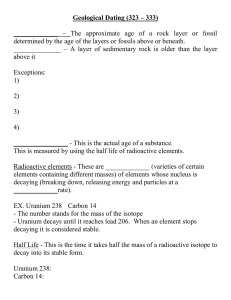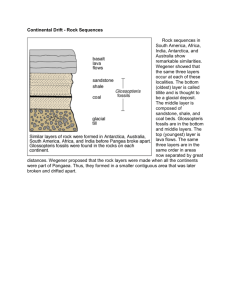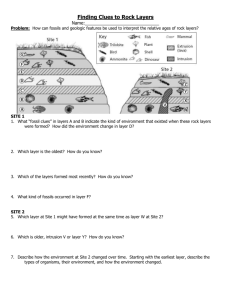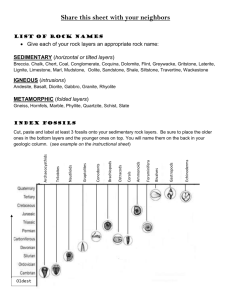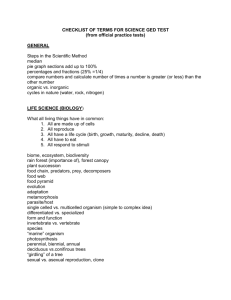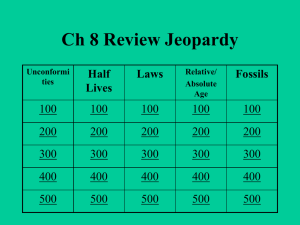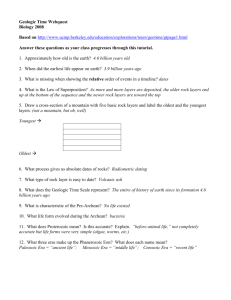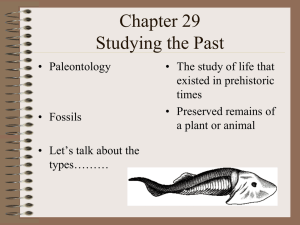Geological Dating (323 – 333)
advertisement
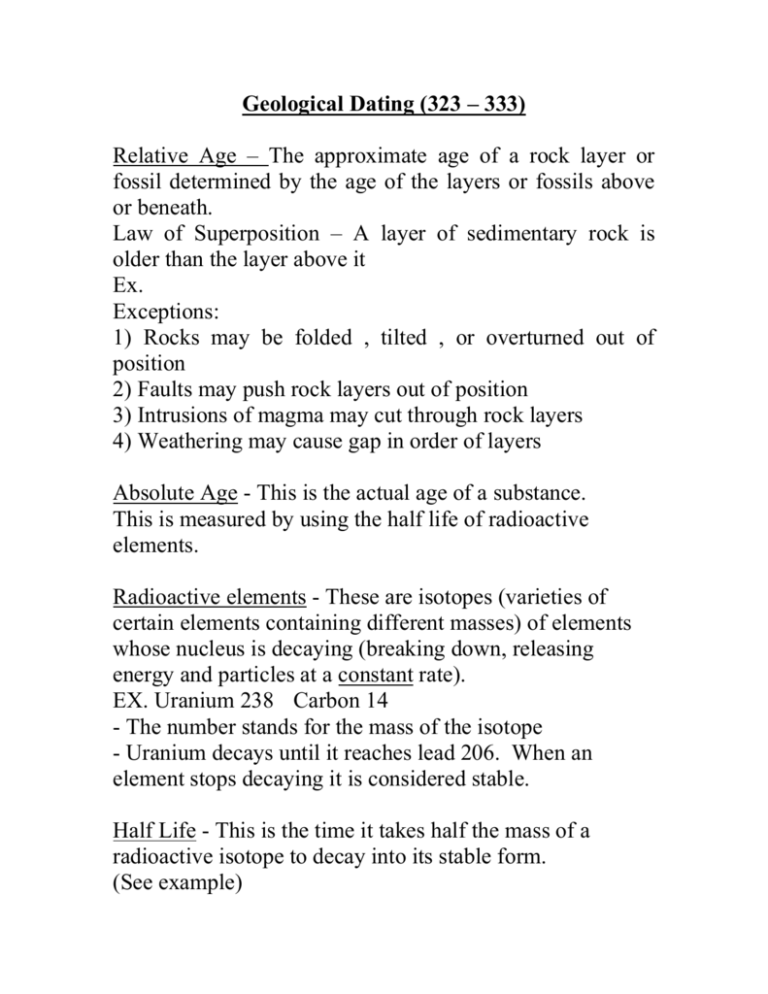
Geological Dating (323 – 333) Relative Age – The approximate age of a rock layer or fossil determined by the age of the layers or fossils above or beneath. Law of Superposition – A layer of sedimentary rock is older than the layer above it Ex. Exceptions: 1) Rocks may be folded , tilted , or overturned out of position 2) Faults may push rock layers out of position 3) Intrusions of magma may cut through rock layers 4) Weathering may cause gap in order of layers Absolute Age - This is the actual age of a substance. This is measured by using the half life of radioactive elements. Radioactive elements - These are isotopes (varieties of certain elements containing different masses) of elements whose nucleus is decaying (breaking down, releasing energy and particles at a constant rate). EX. Uranium 238 Carbon 14 - The number stands for the mass of the isotope - Uranium decays until it reaches lead 206. When an element stops decaying it is considered stable. Half Life - This is the time it takes half the mass of a radioactive isotope to decay into its stable form. (See example)

